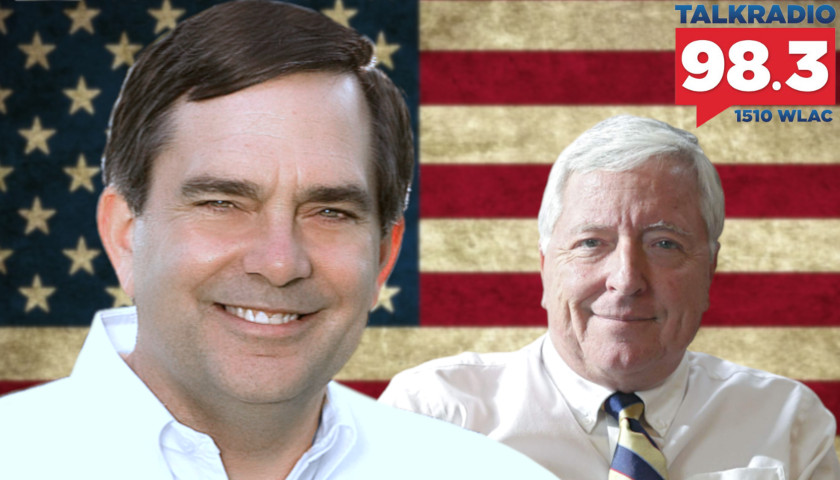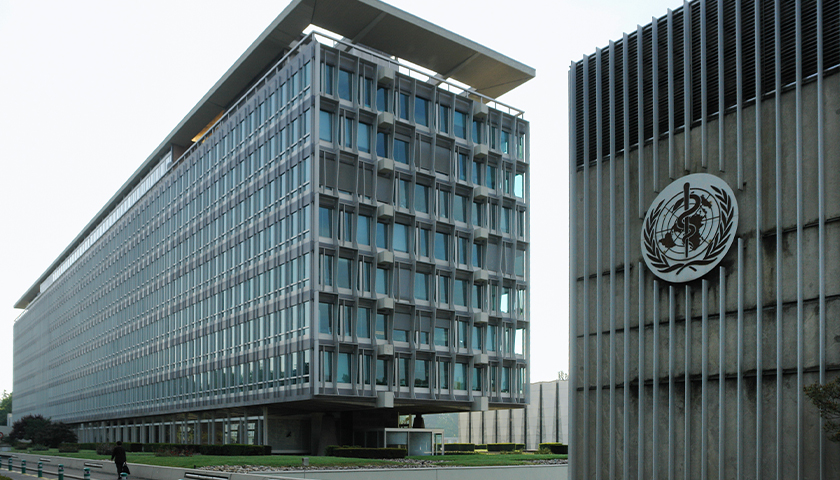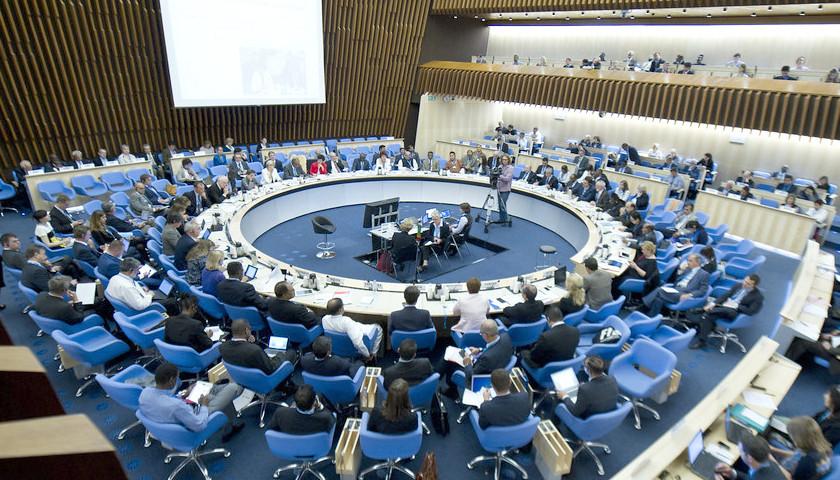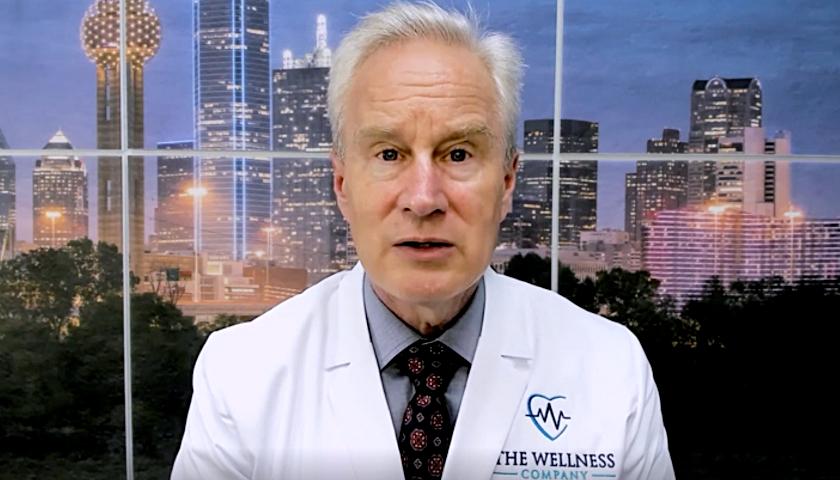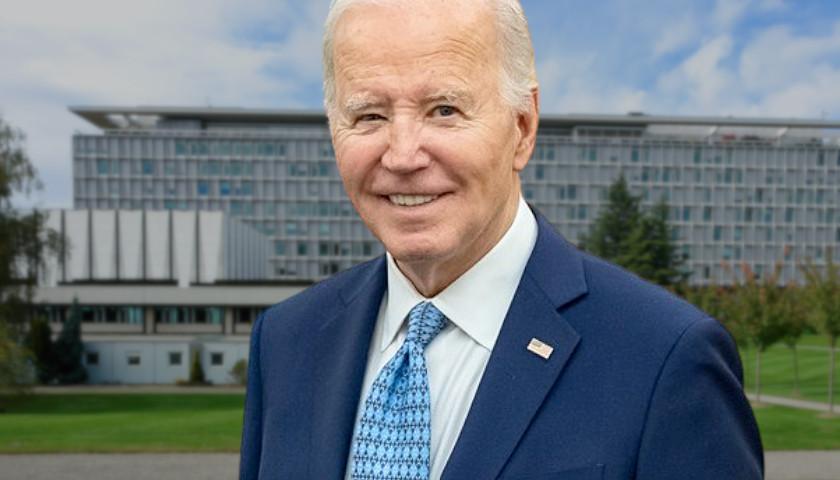In a specific discussion Friday morning on The Tennessee Star Report with Michael Patrick Leahy – broadcast on Nashville’s Talk Radio 98.3 and 1510 WLAC weekdays from 5:00 am to 8:00 am – Leahy was joined live at WHO radio studios in Des Moines, Iowa with Democratic attorney Jim Larew to discuss the ability communicate although on different ends of the political spectrum.
Towards the end of the segment, Leahy questioned Larew about the impeachment process creating a more divisional environment in the country. Larew responded by stating that Nancy Pelosi had expressed concern that the impeachment would create divisiveness and had been previously reluctant to pursue it.
However, he also conceded: “the other side of it is if there is the behavior of a president that exceeds legal constitutional lines to the extent that Congress is almost required by law to at least examine it. If not to remove the president. Of course, the impeachment is just the process of one to examine the behavior of the president to see whether it constitutes a serious enough breach to result in his removal.”
Leahy: You are life long Democrat. Do any of these arguments that the president is being denied due process do any of those arguments resonate with you, Jim?
Larew: Let’s be clear. If Congress is going to initiate impeachment proceeding against any president the process needs to be viewed by the American people as being free. Because as a constitutional process it does usurp the will of the people in terms of who they elect.
So to that extent, I agree with the congressman. To the extent that the allegation is made, in somewhat of as I would interpret as an inflammatory way.
Leahy: What? Louie Gohmert being inflammatory towards Democrats! I’m shocked! I’m shocked you would say that Jim.
Larew: I interrupted his remarks now and in the past as being that way. But I think a person in his position is in a quandary because substantively a very large percentage of people of all political persuasions say that it’s not OK for political candidates to ask for assistance from a foreign government to help win an election.
Leahy: Obviously you’re talking about Joe Biden there, right? (Leahy laughs)
Larew: No. Touche. But to the extent that that’s the proposition that’s being made. That’s one that most Americans would agree with. Whether they agree that offending that proposition requires the impeachment and removal of a president is a different thing.
But in order to reach that conclusion, there ought to be a due process that is fair. I can agree with the congressman that the way that they’ve proceeded till now has denied that congressman or anyone else the process that he deserves in order to hear or decide the facts.
Leahy: Jim, demonstrating why you are one of the best lawyers in Iowa.
Larew: I don’t know.
Leahy: That’s what I hear. That you have a strong reputation of forcibly making your case and making the case for more of the Democrat view. Let’s tell the listening audience why you and I have reconnected after 40 years. When I reached out to you as a life long Democrat you did not say “go away.” Why is that?
Larew: I said come to Iowa for this reason. In the more than 40 years, I’ve been involved in the political process in Iowa, we have many faults in Iowa. One is that we are so polite where we can’t even tell what the other person is really thinking or reservedly so.
But my sense of the discourse that’s going on between the political parties and even within campaigns within a party has gotten so personalized. Sometimes bordering on hateful rhetoric that we begin to act in ways that reflect our words. And if we’re not careful, we’re going to lose something that’s important about this great American experiment.
Which is we govern ourselves and we do so with the exchange of ideas. And we use words to express ideas. And I’m afraid we’re getting to a point where we need to just cool it down. You have an extraordinary trajectory compared to how we used to talk to each other.
Leahy: 40 years ago when we would sit at the Harvard dining rooms and talk with our friend and mentor the late Alan Brinkley. The great professor of history who was your thesis adviser. Of course, this is when you know everything. (Chuckles)
Larew: In your sophomore year, you know everything.
Leahy: I think you were a junior. We’d sit and talk and talk and talk about politics. And of course, we knew everything back then. But you and I were more aligned. I was I must confess to our listening audience who will probably be very disappointed that I was a liberal Democrat back then.
Larew: When we caught up with each other and I learned of your trajectory that you’d gone in a different direction. I found it more interesting rather than less interesting. And the challenge was this of two people who’ve gone in different directions, can we express our views most importantly when we disagree that’s respectful?
That recognizes the dignity of the other person without conceding something that’s important. And I’m trying to do this in different ways. But this jumped right at me unexpectedly. This last year I sort of made it a personal goal that I was going to do this in different ways and then suddenly your call came. And here we are.
Leahy: And we’re going to try and have a dialogue instead of shouting back and forth about it. My wife always tells me to be nice to everybody. And I try. I try. (Laughs) But you know sometimes that competitive streak comes out.
Larew: In Iowa, we have a style. I don’t know how it is in Tennessee. You can go to a rural audience and tell really a great joke and nobody will laugh but after the event is over they’ll tell each other how funny that joke was. (Leahy laughs) They would rather look at their shoes than express anger or hostility towards you.
They don’t do that. There’s something that’s changing in the way that we talk to each other and characterize each other. And I don’t think it’s for the better.
Leahy: It’s dangerous for the country. This is kind of why it’s so important to me that you and I have an opportunity to talk.
Larew: I think it’s generally more persuasive to more people when one presents one’s point of view that doesn’t create sympathy for the other person. But that’s maybe the lawyer talking.
Leahy: And you, by the way, are an extraordinarily brave man to come in here to the lion’s den of conservatism. I know some of your friends here may have advised and cautioned you to take such a rash action.
Larew: Well you know, that’s true. (Leahy laughs) On the other hand, we usually have a tendency to fear that which we don’t understand or have not yet confronted. So I thought let’s get together and see what we can do. And you know I’ve set up a conversation for later today after we are off the air of people who generally don’t sit in the same room at the same time.
One state senator who may be one of our most conservative members. We’re going to have a statewide officeholder Rob Sand who’s probably our most progressive rising star. We’re going to be in the same room at the same time as part of a dialogue.
Leahy: And no food will be thrown.
Larew: No.
Leahy: I won’t throw it.
Larew: It will be cut into nice pieces and people will eat it I hope. It’s Iowa pastry and you don’t want to leave without some of that. But I think it’s an important challenge if we can find ways and I don’t think being polite is conceding a point. But can we do things without hate? Without rancor. And looking to respect what we can with the other person who’s across the aisle from us.
Leahy: I look at the impeachment process as it’s gone on and I say how can the Democrats not realize, Nancy Pelosi and that crowd. Your friends I guess. How can they not realize how utterly divisive this process is?
And just looking at it, it seems to me the entire impeachment inquiry process, the way it’s been conducted has not brought us together but has further divided us? And do they no recognize that is probably, to my view the central thing that’s been accomplished by this?
Larew: I don’t know. I think Speaker Pelosi has expressed it pretty well. She maybe is one of the more reluctant members of the House to go the impeachment route. And has expressed her concern about the divisiveness of it.
The other side of it is if there is the behavior of a president that exceeds legal constitutional lines to the extent that Congress is almost required by law to at least examine it. If not to remove the president. Of course, the impeachment is just the process of one to examine the behavior of the president to see whether it constitutes a serious enough breach to result in his removal.
Leahy: See, I wish every democrat approached this in the way that you do. I think we have a different view of it. I think it’s a very dangerous time for the country. And my view is that the impeachment inquiry is putting us further apart and not bringing us closer together.
Larew: We’ll see at the end of the line whether that’s true or not.
Listen to the full third hour:
– – –
Tune in weekdays from 5:00 – 8:00 am to the Tennessee Star Report with Michael Patrick Leahy on Talk Radio 98.3 FM WLAC 1510. Listen online at iHeart Radio.

